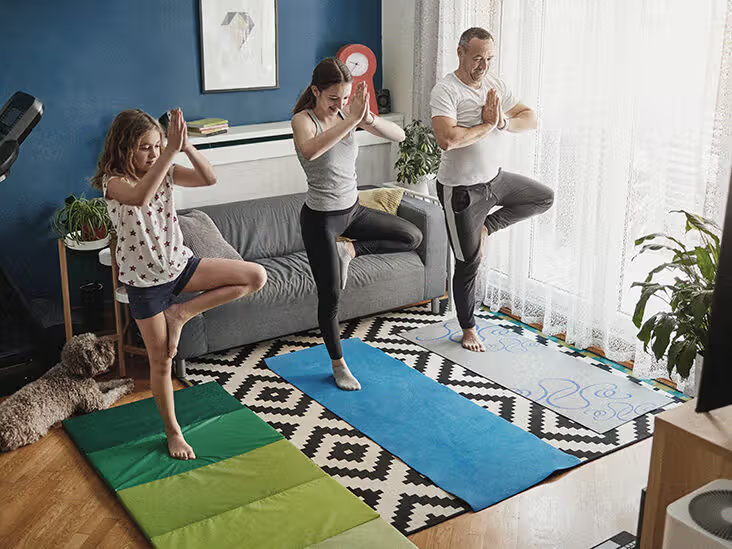When people think of physical fitness, they often imagine intense gym workouts or athletes performing high-level feats. But the truth is, physical fitness is much broader and more essential than that. It refers to your body’s ability to perform daily activities effectively, efficiently, and without undue fatigue—while maintaining enough energy for leisure and unexpected tasks.
To better understand this concept, it’s important to identify which statements about physical fitness are true, as many myths and misconceptions surround the topic.
✅ Which of the Following Statements About Physical Fitness Is True?
Let’s look at some common beliefs and uncover the facts:
1. ✅ Physical fitness includes both health-related and skill-related components.
True.
Physical fitness isn’t just about strength or endurance. It includes:
- Health-related components: Cardiovascular endurance, muscular strength, muscular endurance, flexibility, and body composition.
- Skill-related components: Agility, balance, coordination, power, reaction time, and speed — especially important for athletes.
2. ✅ Physical activity improves both physical and mental health.

True.
Exercise isn’t only for your muscles; it benefits your brain too! Studies show that regular physical activity:
- Reduces stress and anxiety
- Improves mood and sleep
- Boosts confidence and self-esteem
- Enhances cognitive function
3. ❌ You need to work out intensely every day to stay fit.
False.
Fitness is about consistency, not intensity. Even moderate activities like walking, stretching, or yoga contribute significantly to physical fitness when done regularly. The World Health Organization recommends:
- 150–300 minutes of moderate-intensity aerobic activity per week
- Strength training at least twice a week
4. ✅ Flexibility is just as important as strength and endurance.
True.
Flexibility helps:
- Improve posture and balance
- Prevent injuries
- Support mobility and joint health
Unfortunately, many people ignore stretching and mobility exercises, but they are crucial for long-term physical well-being.
5. ❌ Physical fitness only matters for athletes.
False.
Fitness matters for everyone. Regardless of age or profession, physical fitness:
- Reduces risk of chronic diseases (like diabetes, heart disease)
- Supports immune function
- Helps manage weight
- Increases overall quality of life
📊 The 5 Core Components of Physical Fitness

Here’s a deeper look at what physical fitness really entails:
1. Cardiorespiratory Endurance
The ability of your heart and lungs to supply oxygen during sustained physical activity (e.g., running, swimming, cycling).
2. Muscular Strength
The amount of force a muscle can produce (e.g., lifting weights or doing push-ups).
3. Muscular Endurance
The ability of a muscle to perform repeated contractions over time (e.g., planking or squats).
4. Flexibility
The range of motion in your joints and muscles (e.g., stretching, yoga).
5. Body Composition
The ratio of fat to lean mass in your body. A healthy composition supports metabolism and overall wellness.
🧠 Why It’s Important to Know the Truth About Physical Fitness
Misinformation can derail your health journey. By knowing what’s true:
- You make smarter lifestyle choices
- You avoid overtraining or injury
- You stay motivated with realistic goals
- You build sustainable habits that last
📌 Tips to Improve Your Physical Fitness
Whether you’re a beginner or someone returning to exercise, these tips can help you boost your overall fitness:
🔹 Set SMART Goals
(Specific, Measurable, Achievable, Relevant, Time-bound)
🔹 Mix Cardio and Strength
Both types of exercise are crucial for a balanced fitness level.
🔹 Focus on Nutrition
A well-balanced diet fuels your workouts and recovery.
🔹 Stay Hydrated
Water supports every cell function and boosts energy.
🔹 Rest and Recover
Overtraining leads to burnout and injury. Recovery is key!
FAQs About Physical Fitness
Q1. Is physical fitness the same as physical activity?
Not exactly. Physical activity is any movement. Fitness is your ability to perform physical tasks efficiently.
Q2. How much exercise do I need weekly to stay fit?
Aim for 150–300 minutes of moderate activity and at least two strength-training sessions per week.
Q3. Can flexibility training replace cardio or strength training?
No. Flexibility is essential, but it works best when combined with cardio and strength routines.
Q4. Does fitness only mean going to the gym?
Not at all! Walking, dancing, cycling, or doing chores all contribute to your fitness.
Q5. Can older adults benefit from physical fitness?
Absolutely. Staying active can reduce the risk of falls, improve balance, and maintain independence.
Q6. How do I know if I’m fit?
You can test your fitness with benchmarks like how far you can walk/run, how many reps you can do, or how long you can stretch or hold a plank.
Q7. Is it possible to be overweight but still physically fit?
Yes. Fitness is about function and health, not just appearance.
Q8. Can stress affect physical fitness?
Definitely. Chronic stress can harm your recovery, performance, and motivation.
Conclusion: Know What’s Real and Get Moving
Understanding which statements about physical fitness are true empowers you to take control of your health in the smartest way possible. Whether you’re new to fitness or looking to deepen your routine, remember: Fitness is a journey — not a destination. Stick to the facts, stay consistent, and you’ll see improvements not just in your body, but in your mind and daily life too.